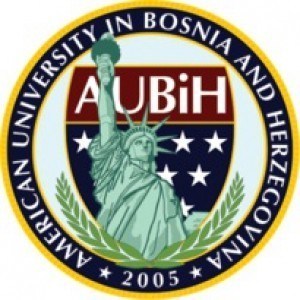Photos of university / #american_university_bih
The Bachelor of Arts in Religious Studies at American University in Bosnia and Herzegovina offers an interdisciplinary education designed to provide students with a comprehensive understanding of world religions, theological traditions, and their impacts on culture, society, and history. This program aims to develop critical thinking, analytical skills, and cultural awareness by exploring religious beliefs, practices, texts, and institutions from various religious and secular perspectives. Students will examine the role of religion in shaping individual identities, social structures, and global issues, fostering an appreciation for religious diversity and interfaith dialogue. The curriculum is structured to include courses in biblical studies, comparative religion, philosophy of religion, ethics, and religious history, ensuring a well-rounded knowledge base and the ability to analyze complex religious phenomena. Emphasis is placed on both theoretical understanding and practical application, encouraging students to engage in research, fieldwork, and community engagement projects. The program prepares graduates for diverse careers in academia, education, journalism, intercultural dialogue, non-governmental organizations, religious institutions, and public policy. By integrating theoretical knowledge with real-world experience, the Bachelor of Arts in Religious Studies aims to cultivate knowledgeable and open-minded individuals capable of contributing thoughtfully to multicultural and pluralistic societies. Through faculty expertise, modern facilities, and a vibrant academic community, students will be supported in their intellectual growth and professional development, making this program a valuable foundation for future scholars, leaders, and changemakers in the fields of religion and society.
The Bachelor of Arts in Religious Studies at the American University in Bosnia and Herzegovina offers a comprehensive and multidisciplinary curriculum designed to provide students with an in-depth understanding of religious phenomena, beliefs, practices, and their impact on societies and cultures worldwide. The program aims to cultivate critical thinking, analytical skills, and intercultural awareness through the exploration of various religious traditions, historical developments, theological concepts, and contemporary issues related to religion.
Students will engage with a diverse range of topics, including the origins and evolution of major world religions such as Christianity, Islam, Judaism, Buddhism, and Hinduism. The curriculum emphasizes the study of sacred texts, rituals, ethical teachings, and religious philosophies. In addition, students will investigate the role of religion in social, political, and economic contexts, examining topics such as religious conflict, interfaith dialogue, secularism, and the influence of religion on art, literature, and media.
The program also incorporates courses in philosophical and methodological approaches to the study of religion, encouraging students to develop their own analytical frameworks. Practical components, including fieldwork, seminars, and project work, allow students to apply their knowledge in real-world settings and foster skills in research, communication, and debate. Special attention is given to the contemporary religious landscape in Bosnia and Herzegovina, promoting understanding and dialogue among different communities.
Graduates of the Religious Studies program will be well-equipped for careers in education, research, diplomacy, community work, journalism, and cultural management. They will also possess a solid foundation for graduate studies in theology, religious studies, or related disciplines. The program emphasizes an inclusive, respectful, and critical approach to understanding religion, preparing students to actively contribute to a more tolerant and informed society.
The Religious Studies undergraduate program at the American University in Bosnia and Herzegovina is designed to provide students with a comprehensive understanding of various religious traditions, beliefs, practices, and their influence on culture and society. The curriculum covers core areas such as the history of religions, religious texts and interpretations, contemporary religious issues, ethics, and interfaith dialogue. Students are encouraged to develop critical thinking skills, analytical abilities, and a nuanced appreciation of religious diversity in a global context. The program requires the completion of coursework in religious theory, comparative religion, theology, and sacred texts, along with electives that might include topics like religious anthropology, sociology of religion, and religious philosophy. Students are also expected to participate in seminars, workshops, and possibly internship opportunities that promote practical understanding of religious communities and interreligious communication. To graduate, students must complete a set number of credit hours as specified by the university, including a final thesis or research project that demonstrates their ability to analyze religious phenomena academically. In addition, language proficiency in at least one foreign language relevant to religious studies, such as Arabic, Latin, or Hebrew, could be recommended or required, depending on the specific focus within the program. The program aims to prepare graduates for careers in academia, nonprofit sector, cultural and community services, or further graduate study in theology, religious studies, or related fields.
The Bachelor of Arts in Religious Studies program at the American University in Bosnia and Herzegovina offers a diverse range of financing options to support students throughout their academic journey. The university primarily funds its programs through a combination of tuition fees paid by students, government subsidies, and private sector partnerships. Tuition fees vary depending on the student's nationality and residency status, with international students often paying higher rates than domestic students. The university provides a transparent fee schedule at the start of each academic year, ensuring prospective students are well-informed about the financial commitments involved.
In addition to tuition fees, the American University in Bosnia and Herzegovina offers various scholarship programs aimed at recognizing academic excellence, leadership qualities, or financial need. These scholarships may cover partial or full tuition fees and are awarded based on competitive selection processes. Scholarships are designed to promote equal educational opportunities and encourage high academic achievement among students pursuing the Religious Studies program.
Furthermore, the university collaborates with numerous international organizations, NGOs, and corporate partners to establish financial aid and internship programs. These initiatives may include stipends or grants that supplement students’ income during their studies, providing practical financial support to ease the burden of educational costs. Students are encouraged to apply for external funding opportunities, including government-sponsored scholarships, Erasmus+ exchange programs, and private grants, which can significantly reduce the overall cost of education.
The university also offers flexible payment plans to accommodate students' financial situations, allowing installments over the course of the academic year. This approach aims to alleviate financial stress and make higher education accessible to a broader demographic. Additionally, students are provided access to financial counseling services, helping them navigate funding options, plan budgets, and apply for available financial aid sources effectively.
While specific detailed information about the exact costs and financial aid packages for the Religious Studies program is not publicly listed, typical financing options employed by the university include scholarships, external funding, flexible installment plans, and financial counseling services. The university’s commitment to fostering an inclusive academic environment ensures that students are supported financially throughout their studies, promoting academic success and personal development.
The Bachelor of Arts in Religious Studies at the American University in Bosnia and Herzegovina offers students a comprehensive curriculum aimed at understanding the diverse religious traditions and their roles within societies. The program is designed to provide a multidisciplinary approach, integrating history, theology, philosophy, and cultural studies to foster critical thinking and analytical skills. Typically, students engage in coursework covering major world religions, religious texts, rituals, ethics, and contemporary issues related to religion and secularism. The program emphasizes both theoretical knowledge and practical understanding, encouraging students to participate in discussions, research projects, and community engagement activities. Throughout their studies, students are expected to develop skills in comparative analysis, scholarly research, and effective communication, preparing them for careers in academia, education, journalism, diplomacy, or community work. The curriculum is usually complemented by elective courses that allow students to explore specific interests within religious studies, including interfaith dialogue, religious history in Bosnia and Herzegovina, and religious philosophy. The program aims to foster an appreciation of religious diversity and promote dialogue across different faith communities, which is particularly relevant given the multicultural and multi-religious context of Bosnia and Herzegovina. Graduates of the program are equipped to critically evaluate religious claims, understand the socio-historical context of religious movements, and contribute meaningfully to discussions on religion in public life. The American University in Bosnia and Herzegovina also provides opportunities for internships, conferences, and collaborations with religious and cultural organizations, enhancing students’ practical experience and professional networks. Overall, the Bachelor of Arts in Religious Studies is targeted at individuals interested in gaining a deep and nuanced understanding of religion’s role in shaping human experience and societal development, both within Bosnia and Herzegovina and globally.








